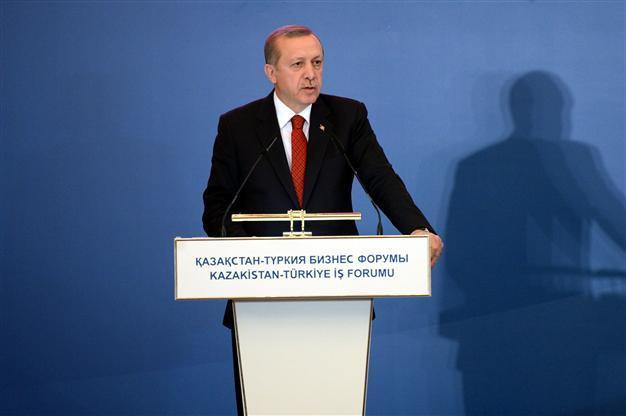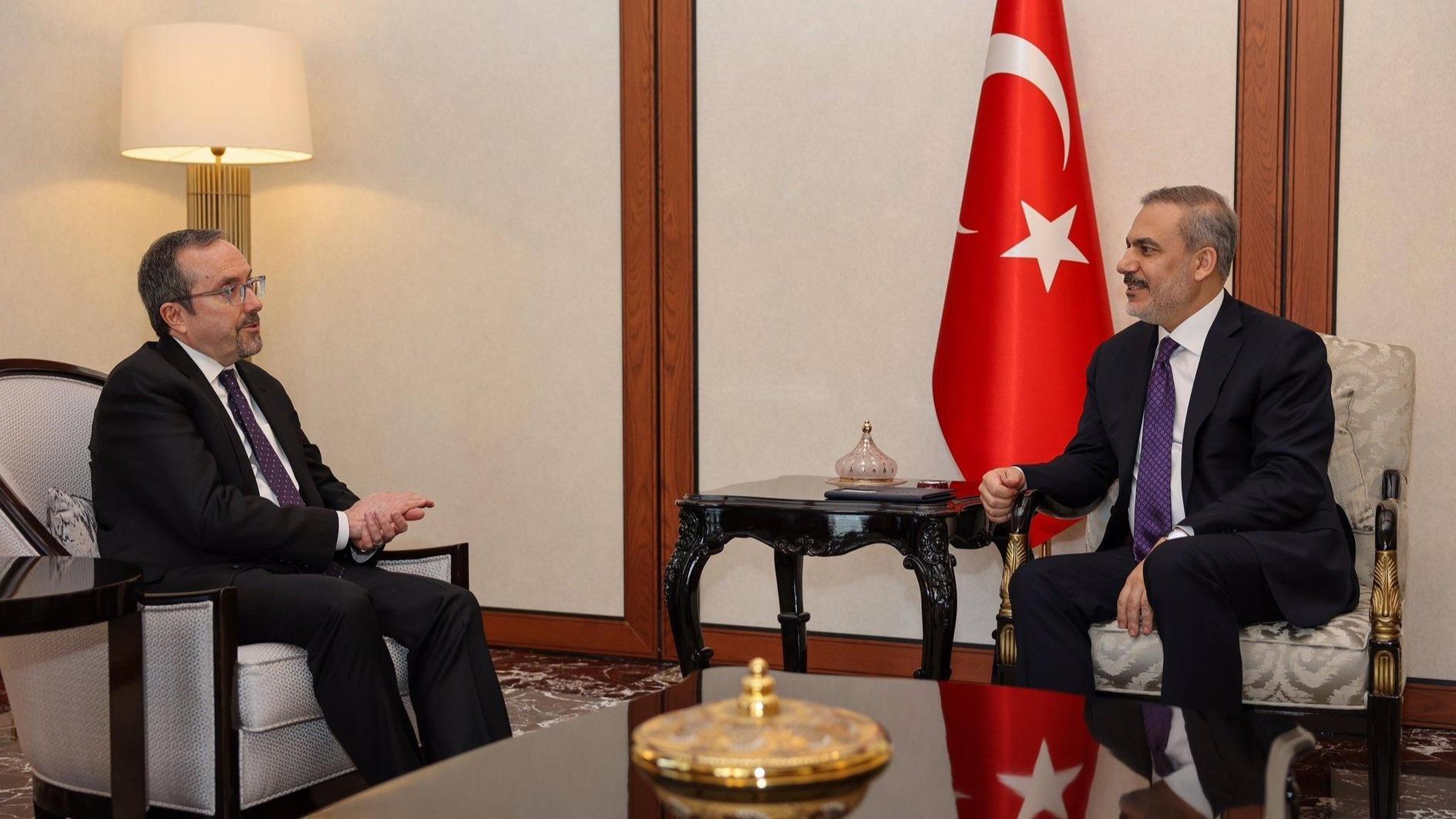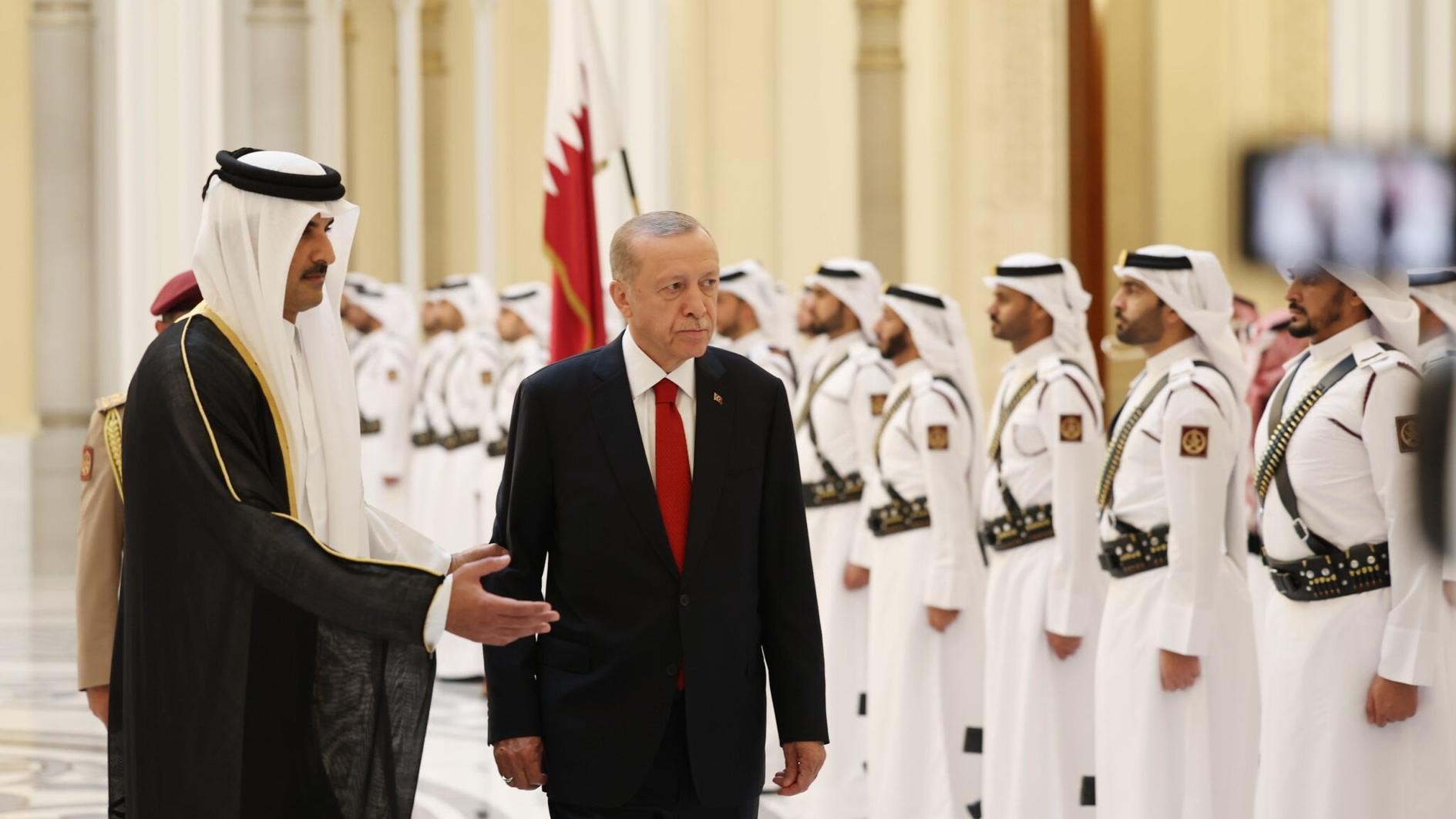Erdoğan says European Parliament’s 1915 vote shows enmity against Turkey
ASTANA / BRUSSELS

AA Photo
European Parliament vote that urged Turkey to use the centenary of the mass slaughter of Ottoman Armenians as an opportunity to “recognize the Armenian genocide” showcases the enmity against Turkey, President Recep Tayyip Erdoğan said April 16.“Such decisions are nothing but an expression of enmity against Turkey by abusing Armenians,” he said in the Kazakh capital of Astana.
“We do not take such decisions seriously,” he said, repeating a call for friendship with Armenians. “Come on, let’s leave history to historians. Let’s build ourselves a new future in the light of our common interests and common past,” he said.
The decision is a betrayal of history as it seeks to accuse Turkey by making a pretext out of the grief of the past, according to the president.
Erdoğan said hours before the vote that Turkey, a European Union candidate, would disregard such a vote.
The European Parliament voted “by a wide majority,” according to the session chair, in favor of an “Armenian genocide” resolution as tension grows over the characterization of the tragedy ahead of the 100th anniversary of the killings on April 24.
The European Commission differed from the parliament in the first remarks on the issue after the April 15 vote, as EU foreign affairs spokesperson Maja Kocijancic preferred to pick the word “tragedy” in a daily briefing.
The spokesperson called on both Turkey and Armenia to take steps for normalization, highlighting the need for peace, additional steps and discussion on the past.
The parliament said it welcomed as a “step in the right direction” earlier remarks by Erdoğan and others “offering condolences and recognizing atrocities against Ottoman Armenians.”
Urging Ankara to go further, the resolution “encourages Turkey” to use the anniversary “to recognize the Armenian Genocide and thus to pave the way for a genuine reconciliation between the Turkish and Armenian peoples.”
It also called on Ankara to open “archives and come to terms with its past” while inviting “Armenia and Turkey to use examples of successful reconciliation between European nations.”
In 1987, the European Parliament described the killings as a “genocide.”
Bulgaria’s European Commission vice-president, Kristalina Georgieva, told the parliament the EU “fully acknowledges the significance of the upcoming commemoration as well as the divergence of views over this tragedy.”
As a member of the EU executive that deals with Turkey, she steered clear of using the word genocide herself.
“Regardless of the words we use to describe those awful events, there can be no denial of their awful reality,” Georgieva said.
Armenia and Armenians in the diaspora say 1.5 million were killed by Ottoman forces in a targeted campaign to eradicate the Armenian people from what is now eastern Turkey.
Turkey takes a sharply different view, saying hundreds of thousands of both Turks and Armenians lost their lives as Ottoman forces battled the Russian Empire for control of eastern Anatolia during World War I.
“This resolution cannot merely be explained away by either a lack of knowledge or ignorance. Unfortunately, what lies behind is a religious and cultural fanaticism and indifference toward others regarded as different,” the Turkish Foreign Ministry said in a written statement minutes after the adoption of the resolution at the European Parliament.
“This aspiration resulted in a preposterous text of resolution dated April 15, 2015, which literally repeats the anti-Turkish clichés of Armenian propaganda,” read the statement.
“With this resolution, the European Parliament repeated exactly the mistake it made in the past in a way incompatible with international law and which exceeds its competence,” the ministry said. “Those who adopted this text may perhaps recall that the EU was established on the pillars of reconciliation and peace culture, and on the basis of the principles such as democracy, human rights and free market economy.”
Warning about relations
Accusing politicians who voted in favor of the resolution of feeding on hatred, revenge and a culture of conflict, the ministry warned the parliament that the vote had the potential to harm relations between Turkey and the EU and would not bring about a solution to the issue between Turkey and Armenia.
“If the European Parliament wishes to contribute to building a common future for European peoples, it should realize that this cannot be achieved by excluding different religions and cultures. As for the 1915 events, it is evident that Turkey has assiduously fulfilled its duty with regards to memory. We hope that Armenia also achieves such a level of maturity as soon as possible,” the statement said.
“Members of the European Parliament may better encounter their own past and remember especially their roles and responsibilities in the most abhorrent calamities of humanity such as World War I and World War II, well before dealing with the 1915 issue,” it said.
















